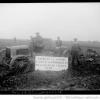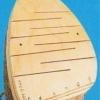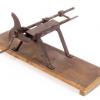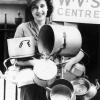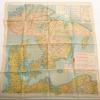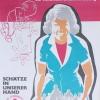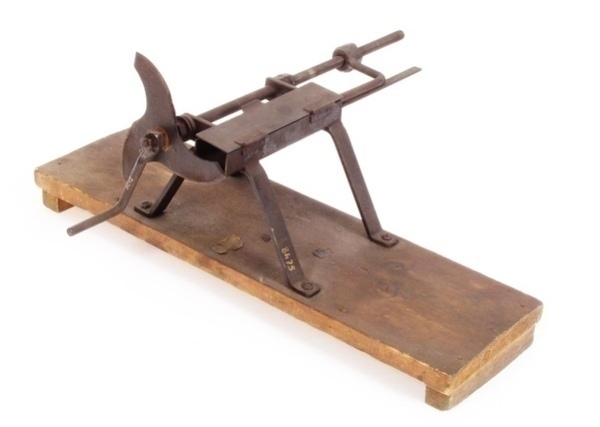Improvising raw materials
During the Second World War shortages were so common that they forced all European countries, both occupying and occupied, to seek alternative sources of raw materials from what was on hand. While production of many items for the war effort was increasingly centralized, there was also increasing pressure on citizens to produce items they might otherwise have bought.
Homegrown tobacco became a commonplace substitute for cigarettes – at that time considered more of a necessity than a luxury. In Great Britain, a "waste paper pamphlet" with a sketch of a pig on the back explained how household waste could make animal feed. In Hungary, women were encouraged to grow oil seeds to secure more sources for making soap.
Fashionable women in Great Britain came up with the idea of sewing new clothes from bedspreads, and Dutch housewives formed balls from soaked old newspapers, which, after drying, were used as valuable fuel. The rise of black markets during (and after) the war left many in the unenviable position of choosing between dangerous illegal activity and going without.
The shortage of petrol across Europe forced some ingenious minds to develop gas generators that could be mounted in ordinary cars. One could feed them with wood, like in Norway, where a machine was invented for making small bits of firewood to be used in those generators.
 Previous Story
Next Story
Previous Story
Next Story
How to cite this page
Slawomir Lotysz, 'Improvising raw materials', Inventing Europe, http://www.inventingeurope.eu/story/improvising-raw-materials
Sources
- Schot, J.W., Albert de la Bruhèze, A.A., et al. Techniek in Nederland in de Twintigste Eeuw. Dl. 4: Huishoudtechnologie Medische Techniek. Eindhoven: Stichting Historie der Techniek, Zutphen: Walburg Pers cop., 2001.





